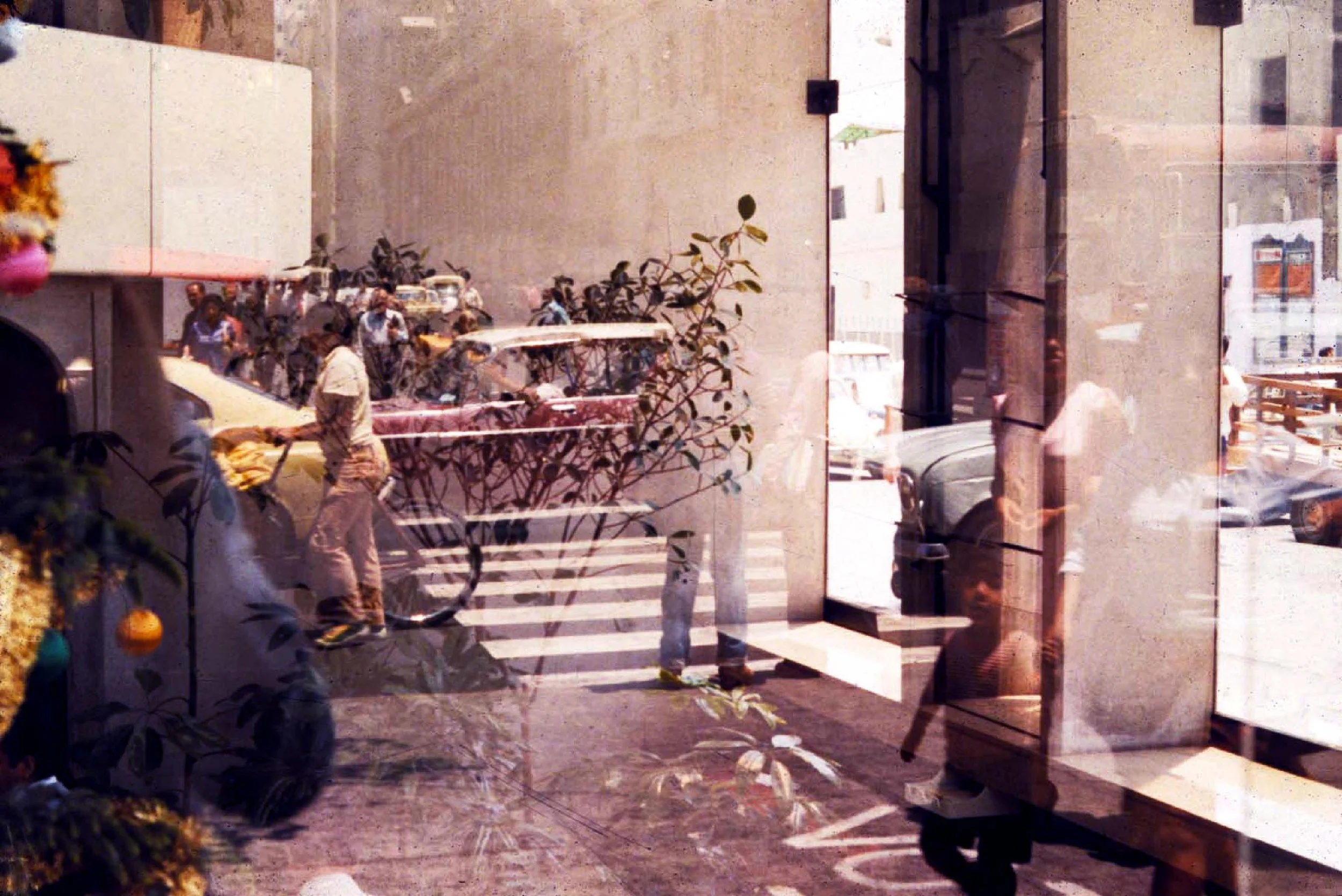Los Angeles Times Review
David Pagel
January 16, 1998
1998 Lima Street Seen Through Bank Window
Urban Detail: Precision and open-endedness cross-pollinate in George Porcari’s oddly cropped photographs at Shoshana Wayne Gallery. Crisp yet ambiguous, these 10 compact pictures of perfectly ordinary street scenes have the presence of vivid adjectives that have drifted away from the nouns they were meant to describe.
Each of Porcari’s prints (which range in size from oversize LP’s to undersized CD’s) embodies the density and compression that animate urban experience. Imagine what it would be like if city life unfolded in slow motion and you were watching it through an old-fashioned keyhole and you’ll get a feel for the strangely alienating attractions of these complex photographs.
Neatly sandwiched between thin layers of Plexiglas, Porcari’s shiny Cibachromes depict fragments of cars, buses and subways or pay phones, luggage carts and fast-food restaurant booths. Whatever happens to be in the background is even more fractured, sometimes to the point of being unidentifiable. Seen through Porcari’s lens, sections of tree trunks, telephone poles and billboards are much more captivating than usual.
So disorienting are their forms that it’s hard to believe these photos were shot in the street and not subjected to some kind of sophisticated digital manipulation. Adding to their intensity are glaring high-lights that ricochet off hoods and rooftops, as well as words that get reversed as they’re reflected in windshields and shop windows.
In Porcari’s densely detailed prints, the urban world takes the shape of an abstract composition. Rather than inviting viewers to take a step back from the tumult and chaos of fast-paced city life, however, these taut images reinvigorate Realism by putting the artifice of abstraction front and center.
